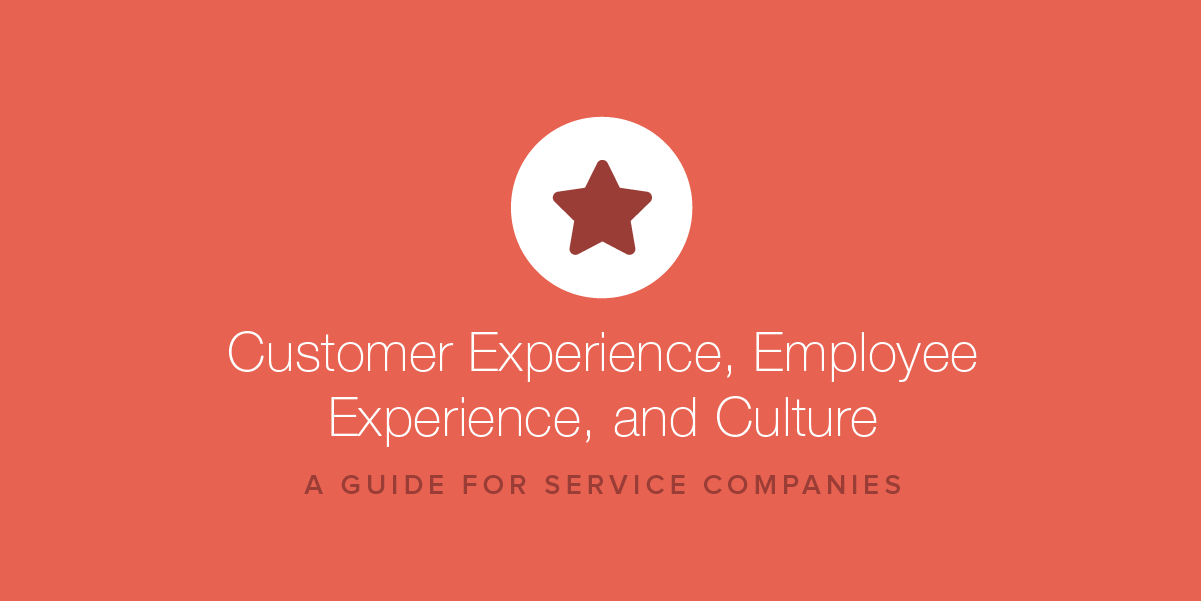Customer Experience, Employee Experience, and Culture for Service Companies
- April 30, 2019
- By: Vonigo
By Aleassa Schambers, Director of Marketing at Root.

I’ve moved a lot. In my 20s and 30s, I averaged one move about every three years. I’ve made short moves and long-distance moves. I’ve hired a lot of movers – even to have furniture moved from one floor to another. Some moves were great experiences. Some were not.
Over the years, I’ve also hired a lot of house cleaners, lawn service providers, and even people to deliver my groceries. Most of these have been good experiences, but not always.
Another person I probably should have hired? Someone to haul junk away (hello, Marie Kondo). But that’s a different story for another day.
Some Companies Stand Apart
In a nutshell, I’ve had a lot of experience dealing with service companies over the years. The factors that make certain companies stand out are what you would expect:
- Responsiveness: Timely communication, showing up when expected
- Going above and beyond: The little things that might go beyond the initial scope of the job or project
- Pleasant/cheerful people: The people you would like to be around versus the people you just want to leave your house now
Unseen Factors at Service Companies
Before I started my current job, I probably wouldn’t have thought much about what separated those great experiences from the not-so-great experiences. I may not have put my finger on factors such as:
- Employee experiences (EX)
- Cultures
- Development of leaders and managers
I just assumed that it came down to bad managers, people with bad attitudes, or companies that didn’t really care and were just in it to make a buck, without thinking about the long-term repercussions of the customer experience.
Now I work at a company that spends every day helping organizations and leaders build better cultures. We work to improve employee experiences and augment manager capabilities to spur growth or other strategic goals.
After so much analysis, I can now easily point to the “disconnects” that can happen in bad situations. I can also quickly recognize the things that organizations with spectacular customer experience (CX) are doing right.

The Connection of CX, EX, Culture, and its Impact on Success
The culture of an organization is not driven by ping-pong tables, satellite radio subscriptions, or Beer Friday. Culture is defined by the beliefs, behaviors, and values of an organization.
Culture dictates the way people act and communicate, and whether they value working long hours or going above and beyond for the customer. It starts at the top and is typically linked to an organization’s purpose. Leaders set the tone for the organization and, in most cases, lower-level employees mimic their behaviors.
Why Culture Matters
The overall employee experience is tightly connected to an organization’s culture. If employees have no voice, if everyone is motivated by fear, or if the organization lacks communication, trust, or commitment to success, then you’re unlikely to have a great employee experience.
As we often say, your customer experience can never exceed your employee experience. If your people aren’t enjoying their work, don’t like their manager or co-workers, or don’t feel their contributions support the larger purpose, then how can you expect them to deliver fantastic customer interactions? You can’t. It’s just that simple.

Tips for Exceptional Employee Experiences, Cultures, and Customer Experience
What can leaders and organizations do to foster great cultures, great employee experiences, and great customer experiences? Here are three ideas to consider.
1. Rethink Leader Behaviors
Leaders set the standard. Everyone looks to leaders to understand what’s appropriate to say and how to act. Their actions and words directly correlate to an organization’s culture.
If a leader is vulnerable and authentic, it sets them up for building a high level of trust with their team and organization. If the leader supports office politics, promotes zero accountability, or embraces hallway conversations instead of ensuring everyone feels comfortable airing their thoughts in team meetings, this will likely create a toxic culture.
The most important thing a great leader can do is walk the walk and talk the talk. That doesn’t always mean towing the party line – a leader should offer constructive input or different perspectives. It does mean being supportive and engaged in organizational priorities and decisions, along with inspiring and motivating the team to deliver on them.
2. Focus on Managers
A manager’s primary job is to coach and connect. They’re not supposed to be “super-doers.” But many new managers don’t know what a manager is supposed to do if they haven’t had training.
Many organizations overlook the importance of training managers on the important soft skills of communication, teamwork, empathy, empowerment, decision-making, and problem-solving.
Managers are the connectors between their teams and the businesses’ strategy. Their job is to make sure they understand the strategic priorities and objectives of the business, connect them to their team’s responsibilities, and then coach every team member to high performance.

3. Front-Line Authenticity
If you think back to some of your best personal CX interactions, you will likely recall someone going above and beyond or being emotionally astute. These people have leeway from their companies or managers to be their authentic selves or to go off-script. That doesn’t mean you want everyone going off-script, because that could lead to inconsistent experiences.

Empowering Good Decision-Making
You might want to think about the various responsibilities of the team in terms of hard lines, guidelines, and no lines. For example, anything policy-related may have hard lines. There might be a few areas where people have guidelines on what to do, but some flexibility in how they do it. There may be other areas where people have no lines – where they can use their best judgment on how to interact with customers.
Operating a service-oriented company is tough. There’s a lot of organizations out there that offer similar things. To break through all the noise and help your company stand out is difficult.
Focus on employee experiences, fostering a great culture, and developing the capabilities of your critical managers. Great things will follow for you, your people, and your customers.
Want to learn about how service business management software can help you manage your business and help it grow? Book a free, private demo of Vonigo.



